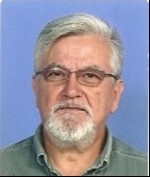and Project-Based Knowledge Creation
FEATURED PAPER
By Prof Dr Pieter Steyn
Cranefield College, South Africa
and
Prof. Dr. Brane Semolič
LENS Living Lab, Slovenia
Abstract
Important resources of the Industry 4.0 economy are innovation, knowledge and information. Modern innovation is profoundly supported by enabling technologies. Moreover, knowledge- and process-based networked organizations, combined with portfolio-, programme- and project management evolved as important strategic key success factors. Major sources of knowledge creation for purposes of knowledge management are Innovative Continuous Improvement Projects resulting from Systems Thinking initiatives emanating from a formal Quality Management System; Research and Innovation Development (RID) Projects; and Organizational Development (OD) initiatives performed through Strategic Transformation and Change Projects.
INTRODUCTION
Knowledge Management (KM) is focussed on the following highly important strategic objectives:
- Creating knowledge and utilizing Knowledge Management as a strategic initiative.
- Applying innovation for achieving more effective ways of operating.
- Applying information-rich knowledge re-use for promoting organizational effectiveness & efficiency (productivity).
Digitalization is essentially an innovation issue and organizations are approaching it with the usual wide variety of attitudes, methods and expectations encountered in managing innovation and change. The attitudes depend largely on the organization’s digital maturity. But innovation and change should rather be explained and motivated by increasing profitability, competitiveness and customer expectations rather than hard technologies. Moreover, in Industry 4.0 open innovation business ecosystems the concepts of innovation (technology), knowledge and information become highly integrated in non-bureaucratic organizations utilising virtual networks of partners (VNPs), where key enabling technology management has moved into the strategic domain of virtual dynamic learning organizations (VDLOs).
The Business Dictionary describes enabling technologies as equipment and/or methodology that, alone or in combination with associated technologies, provide the means to generate giant leaps in performance and capabilities of the user. For example, the coming together of information and telecommunication technologies, the internet of things, and groupware has leveled the field so that even smaller firms are able to compete in areas where they otherwise could not. It is not specific technological innovations, but rather the capability to generate a stream of products, services, and process changes that matter for long-term organizational performance.
In the Industry 4.0 economy, dynamic capabilities theory is profoundly important in creating performance-rich virtual dynamic learning organizations (VDLOs) to replace dysfunctional bureaucratic entities. Disruptive key enabling technologies (KETs) play a major role at many organizational levels in this transformation and change. As a result, new challenges and opportunities arise with respect to product, service, process, and organizational design and development. Moreover, dynamic capabilities are seen as an ability to reconfigure, redirect, transform, and appropriately shape and integrate existing core competencies with external resources, and strategic and complementary assets to meet the challenges of a time-pressured, rapidly changing world of competition and imitation.
Dynamic capabilities are not primarily concerned with fixed assets, but rather aim to explain the way firms locate resources for innovation over time, how existing resources are generated and deployed, and where new resources are obtained. This is highly relevant for developing an approach to knowledge- and technology management, since it explains how combinations of resources and processes can be developed, deployed and exploited for all activities in the new economy. Capabilities theory does not take the market or the product as a given, but as objects of strategic reconstruction, emphasising the key role of strategic management in appropriately adapting, integrating and reconfiguring internal and external organizational skills, resources, and functional competencies towards a changing environment. Rigid, inflexible bureaucracies are incapable of achieving this.
More…
To read entire paper, click here
How to cite this paper: Stein, P. and Semolic, B. (2022). Knowledge Management and Project-Based Knowledge Creation; PM World Journal, Vol. XI, Issue XI, November. Available online at https://pmworldlibrary.net/wp-content/uploads/2022/11/pmwj123-Nov2022-Steyn-Semolic-knowledge-management-and-project-based-knowledge-creation.pdf
About the Authors

Prof Dr. Pieter Steyn
Cranefield College
South Africa
![]()
Dr. Pieter Steyn is Founder and Principal of Cranefield College, a South African Council on Higher Education / Department of Education accredited and registered Private Higher Education Institution. Cranefield offers an Advanced Certificate, Advanced Diploma, Batchelor of Business Administration degree, Postgraduate Diploma, Master’s degree (MCom), and PhD. He holds the degrees BSc (Eng), MBA and Doctor of Commerce, and is a registered Professional Engineer.
He was formerly professor in the Department of Management, University of South Africa and Pretoria University Business School. He founded the Production Management Institute of South Africa, and in 1979 pioneered Project Management as a university subject at the post-graduate level at the University of South Africa. Prof Steyn also taught at the Chung-Shan Institute of Science and Technology in Taiwan as a guest lecturer.
He founded consulting engineering firm Steyn and Van Rensburg (SVR). Projects by SVR include First National Bank Head Office (Bank City), Standard Bank Head Office, Mandela Square Shopping Centre (all in Johannesburg), as also, Game City- and The Wheel Shopping Centres (in Durban). He, inter alia, chaired the Commission of Enquiry into the Swaziland Civil Service; and acted as Programme Manager for the Strategic Transformation of the Gauteng Government’s Welfare Department and Corporate Core.
Prof Steyn is a contributing author of the “International Handbook of Production and Operations Management,” (Cassell, London, 1989, ed. Ray Wild) and is the author of many articles and papers on leadership and management. He is a member of the Association of Business Leadership, Industrial Engineering Institute, Engineering Association of South Africa, and Project Management South Africa (PMSA); and a former member of the Research Management Board of IPMA. He serves on the Editorial Board of the PM World Journal. Moreover, he is the owner of the Aan’t Vette Wine Estate and De Doornkraal Vinotel (4-star hotel) in Riversdale, Western Cape.
Prof Steyn can be contacted at cranefield1@cranefield.ac.za. For information about Cranefield College, visit www.cranefield.ac.za.
To view other works by Prof Steyn, visit his author showcase in the PM World Library at https://pmworldlibrary.net/authors/dr-pieter-steyn/

Prof Dr Brane Semolič
Founder and Head of LENS Living Lab
International living laboratory
Celje, Slovenia
![]()
Brane Semolič studied mechanical engineering, engineering economics, and informatics; he holds a scientific master’s degree and doctorate in business informatics. His focus of professional interest is industrial and system engineering, innovation and technology management, virtual organizations and systems, project and knowledge management. He has 40 years of working experiences in different industries (industrial engineering, IT, chemicals, household appliances, government, and education), as an expert, researcher, manager, entrepreneur, counselor to the Slovenian government and professor. He operates as head of the open research and innovation organization LENS Living Lab. LENS Living Lab is an international industry-driven virtual living laboratory. He is acting as initiator and coordinator of various research and innovation collaboration platforms, programs and projects for the needs of different industries (ICT, robotics, laser additive manufacturing, logistics, education). He was co-founder and the first director of the TCS – Toolmakers Cluster of Slovenia (EU automotive industry suppliers). Since 2004 he is serving as the president of the TCS council of experts. Besides this, he is operating as a part-time professor at the Cranefield College.
He was head of project and information systems laboratory at the Faculty of Mechanical Engineering, Head of the Project & Technology Management Institute at the Faculty of Logistics, University of Maribor and professor of project and technology management at the graduate and postgraduate level. He acted as a trainer at the International »European Project Manager« post-graduated program, organized jointly by the University of Bremen.
He was the co-founder and president of the Project Management Association of Slovenia (ZPM), vice president of IPMA (International Project Management Association), chairman of the IPMA Research Management Board (2005-2012), and technical vice-chairman of ICEC (International Cost Engineering Council). He actively participated in the development of the IPMA 4-level project managers’ certification program. He introduced and was the first director of the IPMA certification program in Slovenia. He has been serving as the assessor in this certification program since 1997. He performed as assessor in the IPMA International PM Excellence Award Program in China, India, and Slovenia.
Brane is a registered assessor for the accreditation of education programs and education organizations by the EU-Slovenian Quality Assurance Agency for Higher Education. He was a Member of Strategic Advisory Board of European Competitiveness and Innovation, as well as the president of the Slovenian Chamber of Business Services. Brane received the award as ICEC Distinguished International Fellow in 2008. He received the »Silver Sign« for his achievements in research, education, and collaboration with the industry from the University of Maribor in 2015.
Professor Semolič is also an academic advisor for the PM World Journal. He can be contacted at brane.semolic@3-lab.eu. Additional information about the LENS Living Lab can be found at http://www.3-lab.eu/ .
To view other works by Prof Semolic, visit his author showcase in the PM World Library at https://pmworldlibrary.net/authors/brane-semolic/









